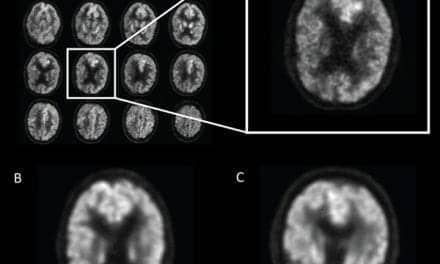Los Angeles-based RadNet, Inc. reports that its DeepHealth subsidiary, a developer of artificial intelligence (AI) for mammography interpretation, published results of its novel AI algorithms in Nature Medicine, illustrating an ability to detect breast cancer a year or more earlier than current practice.
DeepHealth compared its AI to five full-time, breast-fellowship-trained expert radiologists reading the same screening mammograms. The software exhibited higher performance than all five radiologists, and the results suggest that the AI could help detect cancer one to two years earlier than standard interpretation in many cases. Additionally, the software showed promising generalization capabilities, demonstrating strong performance when tested across clinical sites and populations that were not directly involved in training the AI algorithms.
While AI holds tremendous promise for improving screening mammography interpretation, there remain substantial challenges in developing expert-level AI. “Reaching world-class performance requires a new way of building AI,” says Gregory Sorensen, MD, CEO, and co-founder of DeepHealth.
“The brute-force methods that have worked so well in other domains, such as self-driving cars or game playing, where data is plentiful, have not translated effectively to many parts of medicine, where human data is often scarce,” Sorensen adds. “For example, to train the technology for better detection, AI algorithms must be developed from annotated data where the cancer status is known. Such data can be difficult to obtain. Then, to validate performance, the AI should be tested across different clinical sites and patient populations in different scenarios.”
The new study by DeepHealth demonstrates progress in resolving these challenges. “We have developed an approach that mimics how humans often learn by progressively training the AI models on more difficult tasks. By leveraging prior information learned in each successive training stage, this strategy results in AI that detects cancer accurately while also relying less on highly annotated data,” says lead author Bill Lotter, PhD, CTO, and co-founder of DeepHealth. “Our approach and validation extend to 3D mammography, which is particularly important given its growing use and the significant challenges it presents for AI.”
“Our results point to the clinical utility of AI for mammography in facilitating earlier breast cancer detection,” Lotter notes, “as well as an ability to develop AI with similar benefits for other medical imaging applications. By building AI software with high performance and generalizability, DeepHealth has the potential to help radiologists enable more widespread access to high-quality care.”
DeepHealth’s first AI-based product, a software package for prioritization of 2D and 3D mammograms, is based on the same core technology described in the Nature Medicine publication. This product was submitted to the FDA in late 2020, with approval anticipated in 2021.






